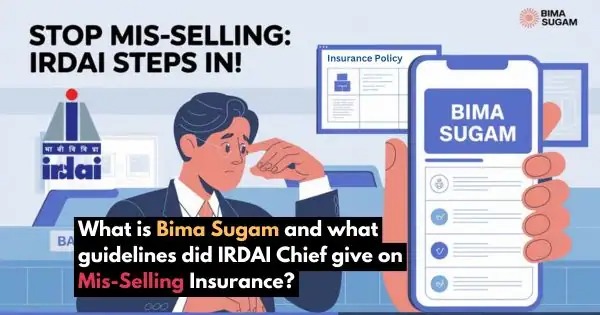Wallace, J.@mdashThree main points have been argued on this petition, (1) whether the statutory rules for the election of the Chairman were broken, (2) whether having found that they were broken the lower Court was not bound to find further that that breach had materially affected the result of the election, before it could set aside the election, (3) whether if the Court has neglected so to find, this Court can, and, if it can, will, interfere in revision, and in what manner it should so interfere.
2. As to point (1) whether the election rules have been broken, the lower Court''s finding appears to me to be a, finding of fact, which in revision, this Court will not ordinarily disturb. It is pleaded for petitioner that the lower Court''s finding is vitiated by a fundamental misreading of the rules which are statutory rules, i.e., that it is based on an error of law. Rule 4 lays down that:
no candidate whose name has been proposed and seconded shall take part in a ballot.
3. It is admitted that petitioner, whose name had been duly proposed and seconded, himself presided at the meeting and conducted the ballot, opened the ballot box, counted the votes and acted as Returning Officer. I am in full agreement with the lower Court that this is "taking part in a ballot," and that that phrase is not restricted, as petitioner argues, to the mere act of voting. The rule has clearly been framed to carry out the salutary principle that no man shall be a'' Judge in his own cause, and that it should not be in the power of one vitally interested in the result to decide on such questions intimately affecting the result, e.g., the validity of a particular vote, as the officer presiding at the ballot has to decide. The English Law on this subject is quite plain, see The Queen v. Owens (1869) 2 El. & El. 89. The Queen v. White (1867) 2 Q. B. 557 and other cases cited on page 115 of Volume III of Rogers on Elections, 18th Edition, viz., that a candidate is precluded from acting as Chairman at an. election and is incapable of acting as a Returning Officer, and that if he so acts and is elected, his election is voidable on petition ad hoc. Rule 4,1 have no doubt, was designed to carry out the principle of English Law.
4. I have no doubt then that in this case Rule 4 was broken, and that the lower Court did not misinterpret the rules or the law relating to elections when it held so. It has been urged before me that this Rule 4 seems to be in direct contravention of Section 28 of the Madras District Municipalities Act, Act V of 1920, which, implies that at every meeting of the Council at which the Chairman is present, he shall preside. The difficulty is not met in my opinion by counter-petitioner''s suggestion of interpreting "absence" as including "incapacity." These two words are in fact used in Section 18 separately and as not implying each other, and if the incapacity of the Chairman to preside had been contemplated in Section 28, similar language to that used in Section 18 could have been employed. Section 30 (4) has been obviously misread by the lower Court and has no application to the present point. The difficulty however is resolved by holding that the word "Chairman" in Section 28,includes "Chairman-Delegate" in cases where there is no Vice-Chairman, and in fact it is clear that one must hold so, otherwise the "Chairman-Delegate" could not preside at meetings at all, a reductio ad, absurdum. The proper procedure then in cases like the present is that the Chairman, being incapacitated from fulfilling his duty of presiding at the election meeting, should u/s 18 appoint a Chairman-Delegate, who, u/s 28, would preside at the meeting. Whether the salutary principle that a man should not be a Judge in his own cause is preserved by a procedure which allows him to appoint his own Judge in his cause may well be doubted, but that is, so far as I can see, the result of the present procedure as laid down in the Act and the statutory rules.
5. Be that as it may, the difficulty does not alter the fact that petitioner committed a breach of the election rules in presiding at the meeting and taking part in the ballot for the election at which he was a candidate. It does not, however, at all follow that the lower Court''s order setting aside the election was correct. Here I come to the second point argued before me. Under the statutory rules for the decision of election disputes published in the Fort St. George Gazette, dated 30th November 1920, page 607, non-compliance with the provisions of the Act or rules made thereunder can invalidate an election only if
the result of the election has been materially affected thereby.
6. To that question the lower Court has, in my opinion, nowhere given its attention. Counter-petitioner argues that since the lower Court holds that the rule broken was a mandatory provision, it must be deemed to hare held that the result of the election was materially affected, and relies on the ruling in Shyam Chand Basak v. Chairman, Dacca Municipality I. L. R.(1920) 47 Calc. 524 "What the Election Rules in Calcutta are, has not been stated- before me. If they follow Rule 13 of the English Ballot Act of 1872 as quoted at page 532 of that ruling, they are wider in principle than the rules in Madras, for under Rule 13 an election conducted "not in accordance with the principles laid down in the body of the Act may be declared invalid." Under the Madras Rules no breach of the rules, whether mandatory or directory, shall invalidate an election unless the result of the election has been materially affected by such breach. It is not an axiom then in this Presidency that the breach of a mandatory rule will so affect an election. It is a question of fact to be decided and found by the Judge who hears the election petition.
7. It was the more necessary for the lower Court to have decided this question in this case, as it was never oven alleged much less attempted to be proved by counter-petitioner, that the result of the election would have been different had the rules not been broken, and there is no suggestion that, while the ballot was going on, the petitioner had to give and did give a decision on any point which could have affected the result of the ballot; and the majority of votes in his favour was overwhelming. Counter-petitioner argues that the onus of showing that the breach did not affect the election lay on petitioner who had violated the rule. Granting so, it is still clear that the lower Court never put that issue before petitioner or called on him to prove it. While obviously it was unnecessary for petitioner to go out of his way to set out any rebuttal to a, case never stated by counter-petitioner in his objection petition to the lower Court.
8. The lower Court has thus neglected to put to itself and to the parties the question it had to decide before under the rules it had any legal power to set aside the election. I therefore come to the third point argued, viz., whether this Court can, and if it can, will, interfere in revision. That in a matter of this kind this Court has power to interfere u/s 115 of the CPC has been lately decided by a Bench of this Court, in
9. Is the present case one then in which this Court should interfere on revision? The phrase in Section 115 which can be called in aid by petitioner is
if such subordinate Court appears to have acted in the exercise of its jurisdiction with material irregularity."
10. A good deal of discussion has centred round this point and many cases have been cited to me for the purpose of showing in what sort or class of cases. High Courts in India and in England have acted in revision. J need not deal with these cases in detail since they all lead to the same conclusion that what is a "material irregularity" is a matter in itself undefinable and must be decided on the facts in each case. So far as it may be negatively defined, it is not a mere mistake of fact or law; see [Amritrav Krishna Deshpande V. Balkrishna Ganesh Amrapurkar I. L. R. (1887) 11 Bom. 488 Kuppuswami Aiyangar v. Narayana Aiyangar (1916) 3 L. R. 36. Jhotu Lal Ghose v. Ganouri Sahu (1918) 3 Pat L. J. 376 Merwanji Muncherji Cama v. Secretary of State for India (1915) 29 M. L. J. 299 unless that mistake has occasioned a wrong assumption or refusal of jurisdiction [Atchayya v. Seetharamachandra Rao I. L. R. (1916) Mad. 195 Hindley v. Joynarain Marwari I. L. R. (1919) Calc. 962. since a Court which has jurisdiction to decide a case on a point of fact or law has jurisdiction to give a wrong as well as a right decision on either point. Thus where there is jurisdiction and that jurisdiction has been exercised merely wrongly so as to eventuate in a wrong decision on fact or law, Section 115 cannot be called in aid; see Amir Hassan Khan v. Sheo Baksh Singh I. L. R. (1886) Calc. 6. and Shew Prosad Bungshidhur v. Ram Chunder Haribux I. L. R.(1914) Calc. 323. But when there is jurisdiction and that jurisdiction has not been exercised or has been illegally or irregularly exercised, Section 115 will apply; see Balakrishna Udayar v. Vasudeva Ayyar I. L. r.(1917) Mad. 793.
11. I take the general principle to be this, that when a Court has taken up a point of fact or law for decision and has decided that point wrongly, it has acted with full jurisdiction and regularly and legally, and no revision lies unless that decision itself affects the Court''s own jurisdiction; but that when, having jurisdiction, the Court has failed or refused to take up the point for decision, it has exercised its jurisdiction irregularly, and the more the failure or refusal affects the exercise of its jurisdiction, the greater the irregularity will be.
12. Applying that principle to the present case, and recalling my conclusions that the lower Court has omitted to decide whether the result of the election was materially affected by the breach of the rules, i.e., to decide the one point in this case which gave it jurisdiction to set aside the election, I cannot come to any other conclusion than that the Subordinate Judge exercised his jurisdiction with material irregularity. Clearly he exercised it irregularly, since he had no legal basis on which to set aside the election and overlooked the one factor which alone gave him jurisdiction to set it aside; and clearly the irregularity was material, because it may well be that if he had decided that question, his decision might have been in petitioner''s favour, and then he would not have set aside the election.
13. I, therefore, u/s 115 (c) set aside the lower Court''s order and direct it to re-hear and decide afresh the petition before it according to law. In doing so, the Subordinate Judge will consider, if he decides that the election should be annulled, whether having regard to the amendments introduced by Madras Act I of 1922 into Madras Act V of 1920, a fresh election is necessary. It is a point I have not heard at length in this Court.
14. Costs in this petition and up-to-date in the lower Court will abide the result.

